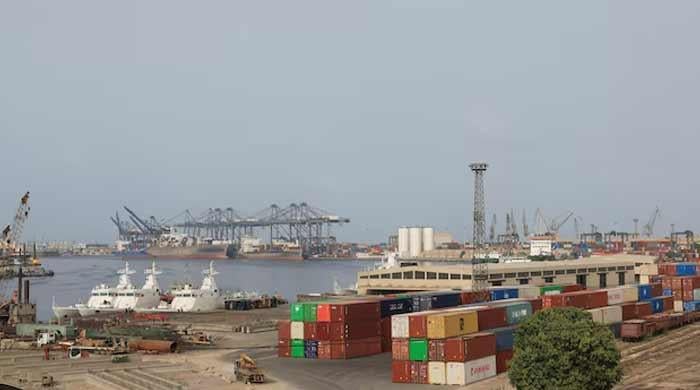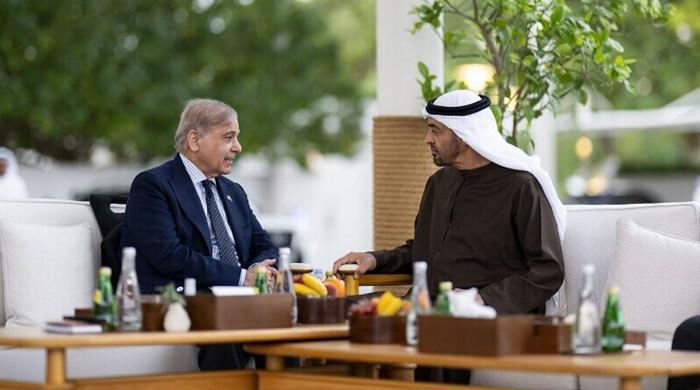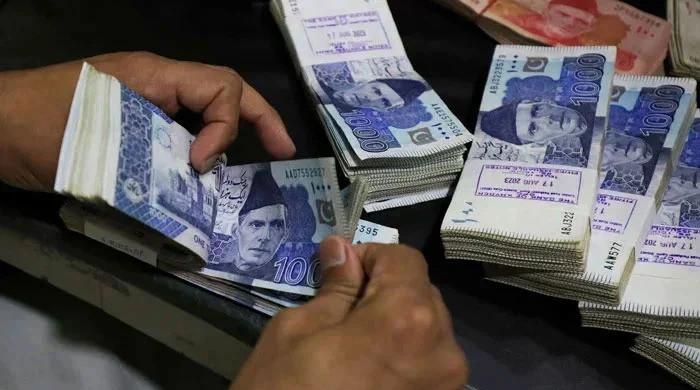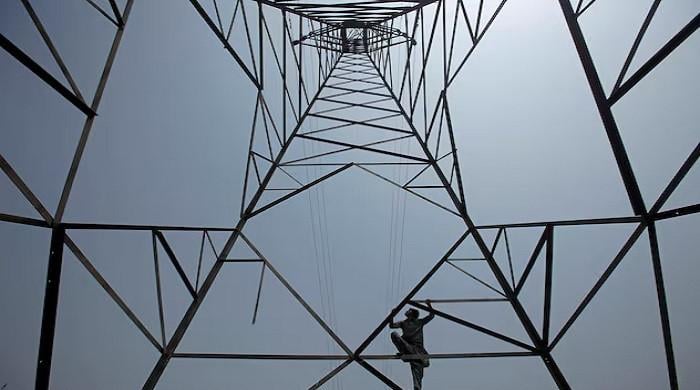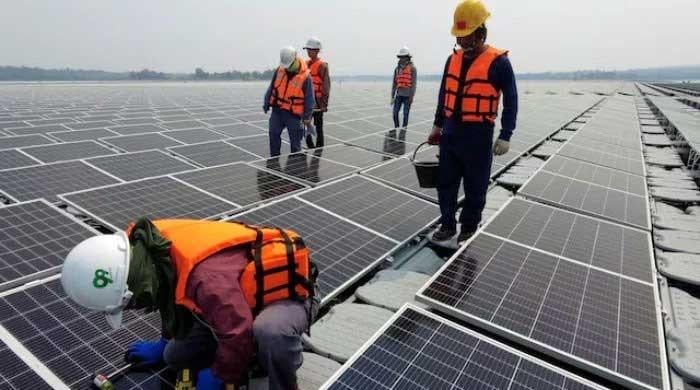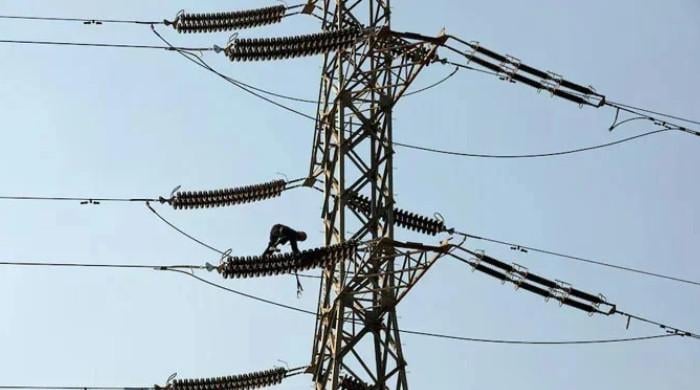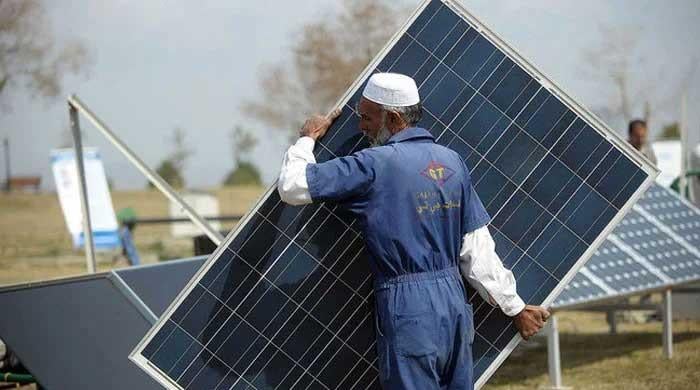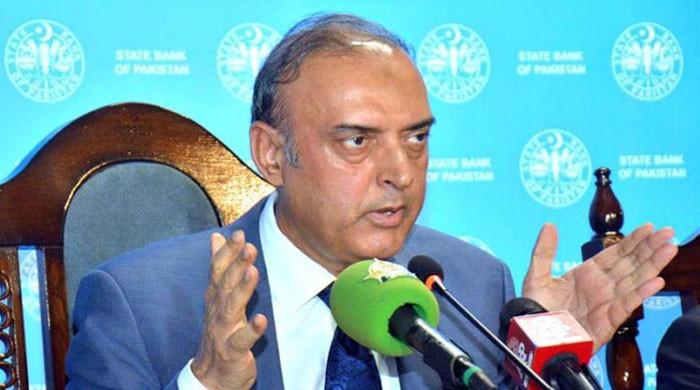Pakistan’s investment regime most liberal in the region, PM tells US businessmen
Pakistan’s economy is back on an upward growth trajectory with liberalised investment sector and improved security environment, PM says
September 23, 2016
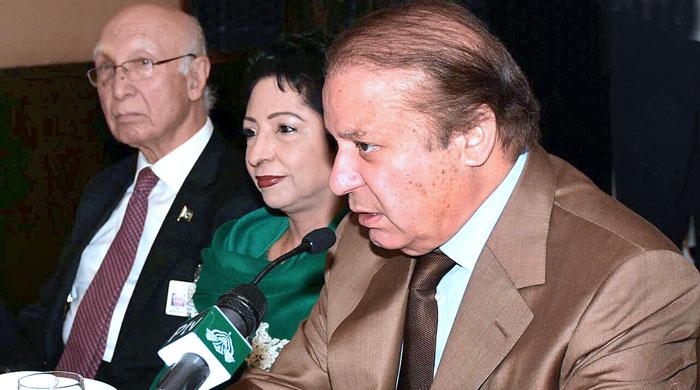
NEW YORK: Pakistan’s economy is back on an upward growth trajectory with liberalised investment sector and improved security environment generating enhanced investor interest, Prime Minister Nawaz Sharif told US business and industry leaders on Thursday.
“Our economic rebound is particularly remarkable because we achieved it while being engaged in major counter terrorism operations that we have launched against terrorists across Pakistan,” he said in a speech at a luncheon co-hosted by the US Pakistan Business Council (USPBC) and the US Chamber of Commerce.
“Thankfully we have been able to restore the writ of the State and reclaim every inch of our territory,” the prime minister said.
“Being a firm believer in the private sector’s pivotal role in the economic development of Pakistan my government has framed policies aimed at providing an enabling environment for private local and foreign businesses to thrive,” he told his audience.
Already the Investment Policy 2013 provides one of the most liberal investment regimes in the region, allowing 100% foreign ownership with emphasis on reducing costs and processes involved in doing business and creating linkages for trade and industry.
Pakistan also has numerous attractive investment opportunities in the Power Oil & Gas Information Technology Infrastructure, Consumer Goods Financial Services and Capital Markets sectors.
Pakistan’s entry into the global bond market and the subscription it generated and the outstanding performance of Pakistan Stock Exchange point to investor-friendly policies and growing investor confidence in Pakistan.
The prime minister said the United States has remained an important economic and trading partner of Pakistan but the level of trade and investment between the two countries has not kept pace with global trends.
Recognising this, he said during his meeting with President Barack Obama in October 2013 they had agreed to jointly work on developing a Joint Action Plan to expand bilateral trade and investment flows over the next five years.
“There is tremendous potential to deepen trade economic and investment cooperation between Pakistan and the United States. Your role as business leaders investors and entrepreneurs is critical in enabling our two governments to fully harness the potential,” PM Nawaz said.
With a young and vibrant population of 200 million, growing consumer demand as well as a stable economy and improved offer enormous opportunities for profitable investment and trade, he said.
Giving an overview of some of the key economic indicators in Pakistan, the prime minister said inflation is now well below 3%—the lowest in 47 years The State Bank of Pakistan in its Monetary Policy Decision announced in May 2016 decreased the discount rate to 5.75%, again the lowest in last four decades. Upgradation of the Karachi Stock Exchange to Emerging Market Index by Morgan Stanley Capital International (MSCI) is an important development as well.
There has also been a successful revival and resumption of the strategic private sector participation programme, he told the businessmen.
The government has also successfully auctioned 3G and 4G spectrum licenses, opening vistas of communication and data transfer in the country, he said.
The prime minister said Pakistan will shortly graduate from the IMF Programme. The Tax to GDP ratio had gone up to 12.5%, up from 9% when the government took reins of the economy.
The Karachi Stock Exchange, being one of the best performing stock markets in the world, closed Financial Year at 37 783 points, he said. It is now trading well over 40,500 points.
Forbes has acknowledged that Pakistan has the potential to be a global turnaround story and ought to be a US strategic partner, the prime minister said.
Jim O’Neill of Goldman Sachs had included Pakistan in N 11 or Next 11 Group of economies expected to register rapid growth in the next decade.
Bloomberg ranked Pakistan (a) 3rd amongst top ten Best Performing Markets in 2014 and (b) 14th amongst top potential investment locations in 2016.
Both S&P and Moody’s have upgraded Pakistan’s credit rating from stable to positive. Fitch has also assigned a stable rating to Pakistan.
The prime minister said that energy supply at least for the industry was much better than before and will improve further as key power projects in the pipeline were operationalised.
There are no power outages for the industrial sector for the last 12 months and the country is on course to eliminate all kinds of power shortages by the end of 2017, he said.
PM Nawaz invited business and industry leaders to seize the moment in availing the new possibilities and opportunities that existed in the country towards enhancing the economic content of Pak-US bilateral ties.
Boeing Director international operations and policy expressed his desire that Boeing wants to partner with PIA and is ready to offer 777 and 787 planes for PIA Premier Service through transparent and competitive process.
President selling and marketing operations of P&G said that the company has already achieved 20 percent increase in its growth in Pakistan and is ready to further invest USD 100 million in Pakistan.
Vice President Philip Morris termed the current budget as business and investor friendly and said that his company wants to engage with Pakistan for business.
Chairman APR Energy said that they are ready to install 350 MWs gas power plant in Pakistan if attractive tariff is offered to them.




